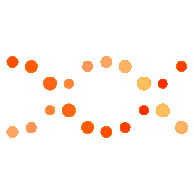
17-18 January 2020
Genomic data analysis for gene discovery and variant interpretation



This 2-day workshop is aimed at genetics and genomics professionals working on gene discovery and variant interpretation in human genetics within research or clinical diagnostic settings. The course will offer the introduction of both theoretical and practical aspects for the analysis of exome data and interpretation of novel variants. We will also explore the power of consanguinity in allowing novel gene discovery through the analysis of ROH (runs of homozygosity) and the delegates will have the opportunity to apply bioinformatics tools to harness autozygosity in the context of the highly inbred populations from the Middle-East and North-Africa.
The workshop will focus on case-based learning for providing practical skills for exome and SNP data analysis. The delegates are encouraged to apply the learned concepts to their own datasets during the workshop and can present cases of interest if they are previously submitted to the course faculty.


.jpg)





Mohammed Bin Rashid University of Medicine and Health Sciences,
Building 14, Dubai Healthcare City
Makani No. : 31111 91768
Dubai, United Arab Emirates
J. Andoni URTIZBEREA, (MD, MSc), aged 59, is a French physician trained in Paris University (1983-1987) and certified in paediatrics and PMR (physical medicine and rehabilitation). After graduating in parallel from the Institut d’Etudes Politiques de Paris in 1987 cum magna laude, he served many years as Medical Director of the AFM-Telethon and then as General Delegate of the Institut de Myologie of Paris (1993-2000). As Scientific Director of the European Neuromuscular Center in the Netherlands and together with AFM’s support (ENMC, 1999-2005), he contributed to the establishment of many worldwide networks in myology, an emerging discipline dedicated to muscle and related disorders (Duchenne muscular dystrophy and spinal muscular atrophy among others). He is currently a part-time clinical myologist in Hendaye, south of France (Hôpital Marin, APHP) and deputy coordinator of the French Neuromuscular Network (FILNEMUS) in Marseilles. Over the past twenty years, he headed various worldwide educational events dedicated to myology (in France, Russia, Latin America and, more recently in the Middle-East). He is a regular visiting professor for the Ministry of Health of Kuwait and a consultant for many pharmas involved in the field. Ideally located at the intersection of industry, patient advocacy groups and academia, his main objective is to raise more awareness about these rare conditions notably in emerging countries and more specifically in the context of novel cutting-edge therapies. Dr. Urtizberea knows quite well the Middle-East, the Indian sub-continent, Russia and Latin America. More recently (2016), and together with Prof. André Megarbané (Beirut, Lebanon), he founded ‘Maladies Orphelines Sans Frontières’ (MOSF), an NGO dedicated to humanitarian relief in the field of rare diseases.